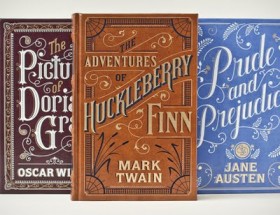Learning the craft of writing
 Consider the following paragraph:
Consider the following paragraph:
The name of the slum was Annawadi. It was close to the airport and was surrounded by posh hotels. The hotels had many floors and from the upper windows you could see the filthy slum Annawadi below.
Nothing wrong with it. The sentences are grammatically correct. They make sense too. But what the piece lacks is quality. Now read the paragraph below.
Serving the airport clientele, and encircling Annawadi, were five extravagant hotels: four ornate, marbly megaliths and one sleek blue-glass Hyatt, from the top-floor windows of which Annawadi and several adjacent squatter settlements looked like villages that had been airdropped into gaps between elegant modernities.
“Everything around us is roses” is how Abdul’s younger brother, Mirchi, put it. “And we’re the shit in between.”
The location described is the same, but this is the way Katherine Boo portrays it in her award-winning book “Behind the beautiful forevers“.
My point? Writing is a skilled job, and if you’ve understood what being a freelance writer is really all about, you’ll know that just like with all other crafts, say painting or carpentry, you first need to work hard at developing the necessary skills before you try to earn money from it. You have to learn the basic techniques and develop a good writing style.
Learning from great writers
 The best sources for picking up the finer points of writing are of course the classics, and the works of gifted contemporary writers, like say, Aravind Adega, Kiran Desai, Khaled Hosseini, Mohsin Hamid, J. M. Coetzee, and Ian McEwan. (A good site for browsing through the classics free: www.gutenberg.org) In other words, read the best.
The best sources for picking up the finer points of writing are of course the classics, and the works of gifted contemporary writers, like say, Aravind Adega, Kiran Desai, Khaled Hosseini, Mohsin Hamid, J. M. Coetzee, and Ian McEwan. (A good site for browsing through the classics free: www.gutenberg.org) In other words, read the best.
And when you do, scan these works through the eyes of a reader and a writer. Read critically. Look at the stylistic devices used, the precise use of words and the different ways sentences are crafted to make the writing more lucid, and a pleasure to read through. If you’re captivated by a particular paragraph, read it again to understand what made it so remarkable.
Here are a few excerpts from the works of well-known writers:
Oscar Wilde: The Picture of Dorian Gray
“I know she goes in for giving a rapid précis of all her guests. I remember her bringing me up to a truculent and red-faced old gentleman covered all over with orders and ribbons, and hissing into my ear, in a tragic whisper which must have been perfectly audible to everybody in the room, the most astounding details. I simply fled. I like to find out people for myself. But Lady Brandon treats her guests exactly as an auctioneer treats his goods. She either explains them entirely away, or tells one everything about them except what one wants to know.”
Jorge Luis Borges: The Secret Miracle (Short story)
The squad formed and stood at attention. Hladik, standing against the barracks wall, waited for the volley. Someone pointed out that the wall was going to be stained with blood; the victim was ordered to step forward a few paces. Incongruously, this reminded Hladik of the fumbling preparations of photographers. A big drop of rain struck one of Hladik’s temples and rolled slowly down his cheek; the sergeant shouted the final order.
Arundhati Roy: The God of small things
The nights are clear, but suffused with sloth and sullen expectation. But by early June the southwest monsoon breaks and there are three months of wind and water with short spells of sharp, glittering sunshine that thrilled children snatch to play with. The countryside turns an immodest green. Boundaries blur as tapioca fences take root and bloom. Brick walls turn moss green. Pepper vines snake up electric poles. Wild creepers burst through laterite banks and spill across the flooded roads. Boats ply in the bazaars. And small fish appear in the puddles that fill the PWD potholes on the highways.
Of course, after you’ve seen how the masters of the craft do it, you have to ultimately develop your own style, find your own author’s “voice”.
How to improve your writing skills
One of the best guides you could refer to is the little classic: The Elements of Style by William Strunk. It can be downloaded in its entirety (all six parts) from the ‘gutenberg’ website mentioned earlier. But you could read some useful guidelines in Part II and most of Part III by clicking here.
A few basic tips:
Structure: Whether you’re writing an essay, a short story, or anything that you want people to enjoy reading, structure your sentences and paragraphs correctly. In sentences, place what you want to highlight either at the beginning or the end, though for creating the best impact, the more preferred position should be the end. For instance, look at these sentences below.
A tiger was just a few feet in front of us.
Just a few feet in front of us was a tiger.
The first places an emphasis on how close the tiger was, while the second gives prominence to the word ‘tiger’. But as a rule, see that your sentences don’t end with insignificant words or phrases.
Each sentence in a paragraph should lead logically to the next one. Vary the construction and length of the sentences by using a mix of simple and complex sentences. Also, the transition from one paragraph to the next should be smooth.
Clarity: Using long and uncommon words doesn’t necessarily indicate you’re more intelligent or a more consummate writer. So pick the word that conveys your meaning the best, not the one that is the longest. De-clutter your work. Delete unnecessary words. Don’t say “at this present time” when you could simply say “now”. Instead of “what I personally feel is”, say “I feel”.
Elegance: Add a touch of refinement to your writing by including imagery and figures of speech such as similes and metaphors. The excerpts mentioned earlier are good examples of how such elements can lift any piece of writing to a higher level. Use active verbs and avoid overuse of adjectives, adverbs, and exclamation marks for they spoil the reading experience. Instead, as Strunk suggests, try to write more with nouns and verbs. Use adjectives and adverbs only when necessary and never redundantly as in “returned back”, “sick patient”, or “very awful”.
Finally, remember Katherine Boo didn’t become Katherine Boo overnight. So don’t expect instant success. It could take months or even years to improve your writing skills significantly. And when that happens, you’ll be able to relax, and write confidently without trying to imitate someone else’s writing style.
Did I say relax? In his bestselling book “On Writing Well”, William Zinsser says asking a writer to relax is like telling a man to relax while being examined for a hernia. So yeah, it’s not going to be easy to just relax and let the words flow. But once you get to that stage you can be sure you’ll soon find avenues for earning money through your freelance writing.
Psst: Just drop me a line at veenawrites16@gmail.com, and I’ll email you my FREE e-booklet titled: Free Online Resources for Writers. It’s a compilation of helpful online resources every writer needs, freebies I found by scouring the internet and which I have personally found to be very useful.
Bye for now… and if you liked what you’ve read, don’t forget to pass the word around to your friends who might be interested in freelance writing.
